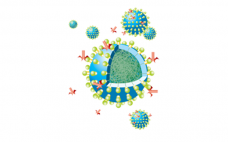In an audiocast with managing editor Maribel Rios, Hazel Aranha (manager of viral clearance and safety at Catalent Pharma Solutions) discusses risk assessment and management strategies since her November 2005 article, “Virological Safety of Biopharmaceuticals.” Several factors have made risk an increasingly important issue, including the globalization of the industry and concerns over emerging viruses. Some strategies for addressing risk — such as the “as low as is reasonably practicable” (ALARP) approach and conducting a cost–benefit and decision analysis —…
Podcasts
Culture Media: Sourcing Animal-Free Raw Materials
For September’s Ask the Expert, we talked to Bill Whitford (senior manager of the bioprocess market for Thermo Fisher Scientific) about sourcing animal-free raw materials for cell culture media. This has become a requirement for many biopharmaceutical sponsors, but it is not without its issues. But what precisely is meant by animal is not always clear. Regulatory guidance is sparse on this issue. And a designation of animal-derived–component free (ADCF) often involves additional certification, testing, or auditing. Sponsors and material…
Reducing Tech-Transfer Risk
Process understanding is the key to mitigating risks associated with technology transfer. In 2007, Justin Neway provided strategies for combining on-demand data access, trending, reporting, and analytics to achieve that understanding throughout process development (pdf). With increasing adaptation of process analytical technology (PAT) and quality-by-design (QbD), process understanding strategies have shifted.
Cell Therapies Roundtable: Building the Pillars to Success
In order to deliver cell-based therapies on a commercial scale, cell therapy companies and suppliers must form partnerships in order to overcome existing manufacturing, regulatory, and analytical challenges. Four leading cell therapy experts discuss what is and what has to be done in order to accomplish this objective.
Utilization of Allogeneic Liver Progenitor Cells Expanded from Adult Healthy Human Livers to Treat Genetic Disorders
Promethera Biosciences presents this case study detailing how HHALPC from normal adult livers can be purified, expanded In vitro and utilized to successfully treat patients with Crigler-Najjar disease.
Moving Cell Purification Methods from Bench to Bedside
The technological innovations and improvements to cell purification and other cellular analysis-based processes have dramatically increased sample throughput rates resulting in an improved ability to treat cancer, autoimmune diseases, and a range of applications in regenerative medicine.
Tackling the Challenges in the Manufacturing of Cell-Based Therapies
While cell-based therapies offer huge potential, significant challenges, including GMP manufacturing, scaling-out, and delivery must be addressed and overcome in order to justify and successfully autologous and allogeneic provides to the market.
From R&D to Commercialization: Challenges for Cell Therapy Manufacturing
In order for cell therapy companies to successfully evolve from R&D to commercialization, there are many lessons learned from the protein business that can be applied to the cell therapy market.
New Downstream Harvest Options Using Custom Designed Disposable Resins
Engineered affinity resins create the ability to produce functional proteins on a solid support in vivo which can lower production costs, improve flexibility and increase scale up speed.
Next Generation PEGylation Technology
Decreases in the immunoreactivity of next generation PEGylated drugs may be attainable by the use of monofunctionally activated hydroxyPEGs instead of methoxyPEGs in their synthesis.




